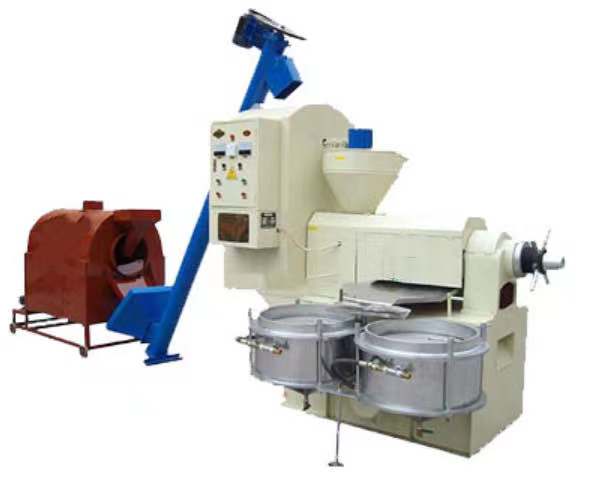Hot pressing of oil means that the oil is cleaned and crushed before being subjected to high temperature heating treatment, which causes a series of changes in the oil, destroys the oil cells, promotes protein denaturation, and reduces the viscosity of the oil, so it is suitable for pressing and extracting oil. And speed up the oil yield.

Most of the vegetable oils we eat in our daily lives are hot pressed oils. However, the oil (called crude oil) squeezed out of the oil after high temperature treatment is darker in color and has a higher acid value. Therefore, it needs to be refined before it can be eaten. At the same time, high-temperature squeezing of oil causes the biologically active substances (vitamin E, sterols, carotenoids, etc.) in the oil to be greatly lost during the squeezing process, resulting in a waste of nutritional resources.
Cold-pressed oil refers to the vegetable oil that is sent to the oil press for extraction without heating or at a low temperature (usually 60~80°C) before the oil is pressed. The squeezed oil has a lower temperature and a lower acid value, and generally does not require refining, and refined oil can be obtained after precipitation and filtration.

Cold-pressed oil has pure natural characteristics, avoiding the adverse effects of traditional high-temperature oil-pressing processing. Cold-pressed oil retains the natural flavor and color of the oil, and completely preserves the physiologically active substances in the oil (vitamin E has anti-aging functions, sterols have skin health effects and enhance human metabolism). The original flavor of cold-pressed oil is the choice for a healthy life. With the continuous acceleration of people's living standards, cold-pressed oil is more and more favored by consumers.
However, most oils are not suitable for cold pressing. Take soybeans, high erucic acid rapeseed, cottonseed, peanuts, and sesame seeds as examples. Gossypol toxins and aflatoxins in spoiled oils need to be refined to get rid of them; while the fragrance of sesame oil and peanut oil need to be hot pressed.
In addition, the raw materials of cold-pressed oil need to be carefully selected, otherwise due to the different maturity of the raw materials and the harmful substances contained in the raw materials (such as: aflatoxin in moldy oil and gossypol toxin in cottonseed). It has a serious impact on the quality of cold-pressed oil. Generally speaking, cold-pressed oil has a low smoke point and unstable water content, which is not conducive to long-term storage.
If you want to know about cold pressing process and hot pressing process, please feel free to contact us!
Copyright © Henan Zhongxing Grain And Oil Machinery Co.,Ltd. All Rights Reserved. Powered by MetInfo